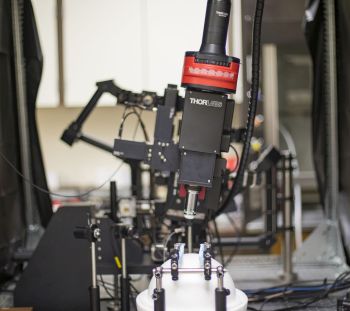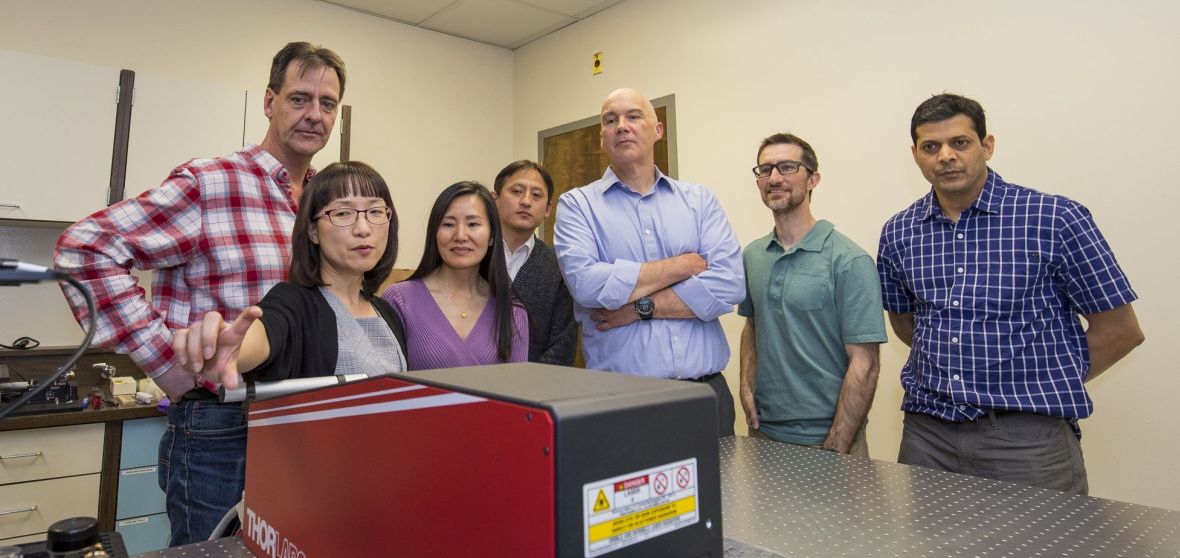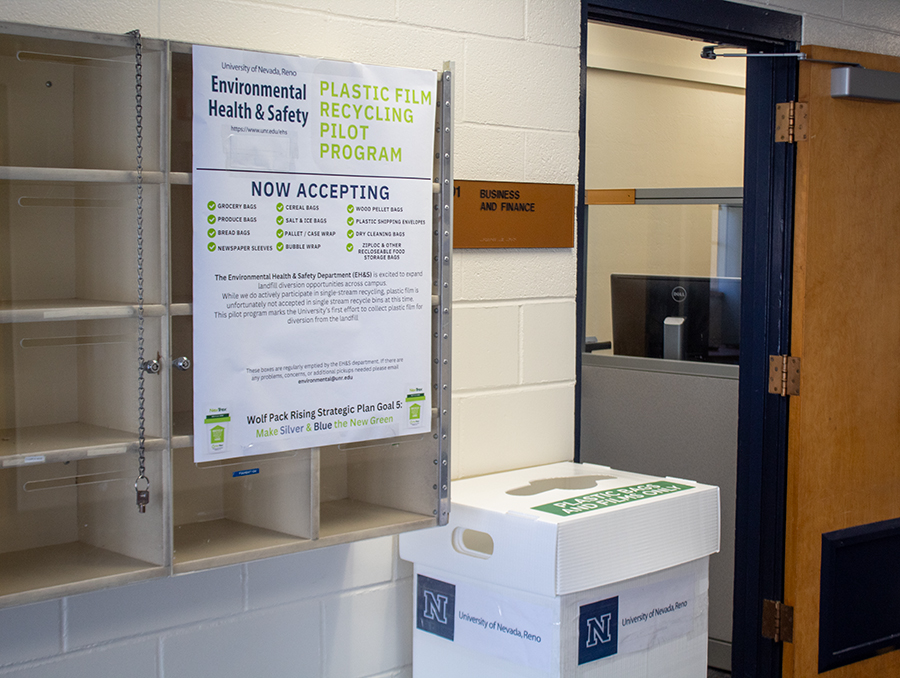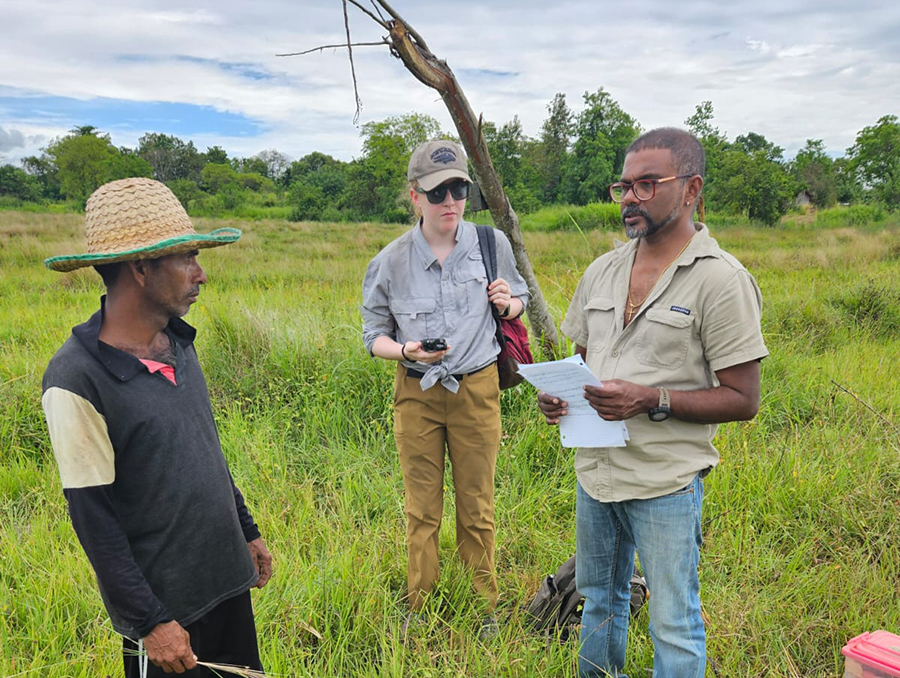Cardiovascular disease is the leading cause of death in the United States, a fact that underscores the significance of a new interdisciplinary research center being developed at the University of Nevada, Reno. Supported by an $11 million, five-year grant recently awarded through the Centers of Biomedical Research Excellence (COBRE), a highly competitive program of the National Institutes of Health (NIH), the research center is focused on better understanding the molecular and cellular signals that regulate the cardiovascular system.
"Most American adults - more than 50 percent - have one form of cardiovascular disease or another," said Scott Earley, professor in the University of Nevada, Reno School of Medicine's (UNR Med) Department of Pharmacology and program director for the new center. "The thematic focus of our center is to develop deep insight into the cellular and molecular functions that lead to cardiovascular disease. Signaling pathways have been traditional targets of pharmaceutical development and we need to more deeply understand this to support further advancements."
While cardiovascular health is significant in itself, research is connecting cardiovascular disease to other aspects of health and quality of life. For example, because it impacts blood flow to the brain, cardiovascular disease is connected to age-related cognitive decline.
The combination of these inter-connections with an aging population leads Earley to cast cardiovascular disease as being "probably more serious than we currently know."
Expertise and Capacity
The COBRE program builds capacity by directing support toward an existing, demonstrated area of multidisciplinary expertise. In addition to contributing research funding, the latest COBRE grant strengthens the University and UNR Med's leadership in cardiovascular research and will serve as a powerful engine for expanding high-caliber research in northern Nevada and across the state.
The concept for the new Center for Molecular and Cellular Signal Transduction in the Cardiovascular System grew from the collaboration of four accomplished UNR Med researchers in the Department of Pharmacology and Department of Physiology and Cell Biology.
Earley; Robert Harvey, professor, Department of Pharmacology; Normand Leblanc, professor, Department of Pharmacology; and Yumei Feng, associate professor, Department of Pharmacology and of Physiology and Cell Biology, have strong research programs that have received NIH support. Their shared scientific interests include cellular signaling, signaling pathways, cellular receptors, epigenetics, transgenic animal models, neuronal cardiovascular control and smooth muscle function.
The grant supports the development of two research cores:
- Transgenic Mouse Genotyping and Phenotyping Core, directed by Feng, who is also co-director of the Integrative Neuroscience Graduate Program. This core will be operated in collaboration with Ben Weigler, campus attending veterinarian and director of Animal Resources, part of Research & Innovation.
- High Spatial and Temporal Resolution Imaging Core, directed by Leblanc.
"The COBRE grant program is one of the most powerful ways to bring together several scientists, labs and facilities in a focused way on a specific group of diseases," said UNR Med Dean Thomas L. Schwenk, M.D. "For example, this COBRE grant unifies an expert group of investigators under an experienced senior investigator to explore key fundamental aspects of cardiovascular function that have a high likelihood of informing new therapeutic approaches to cardiovascular diseases."
An intense commitment to collaboration is evident as Earley describes the development of the center and the work ahead. A vascular physiologist and biophysicist who studied under one of the top biophysicists in the world at the University of Vermont, Earley is noted for taking a layered, multidisciplinary approach in his lab. As he said, physiology demands a multidisciplinary perspective, as does the "revolutionary research" happening at the molecular, cellular and nanoscale levels.
A strong example of a multidisciplinary approach and research impact is the publication of findings in fall 2018 by Earley and University of Nevada, Reno colleagues in the Proceedings of the National Academy of Sciences. Through physiology, cell biology, super-resolution microscopy and mathematical modeling, they became the first research team in the world to identify nanoscale receptor-clustering changes as the likely source of cerebral vascular smooth-muscle dysfunction in Duchenne muscular dystrophy.

"Dr. Earley's research is clearly at the forefront of biomedical science," said Mridul Gautam, University vice president for research and innovation. "Five (NIH Research Project Grants) were awarded to support his work and these grants, plus the COBRE grant, represent $22.6 million in competitive research support in 2018."
Early-Career Program Development
The COBRE program further supports the development of early-career faculty. In this instance, the grant will support and provide mentorship for four programs led by early-stage investigators:
- Bradley Ferguson, assistant professor of nutrition in the College of Agriculture, Biotechnology and Natural Resources, focused on epigenetic mechanisms that link metabolic diseases to heart failure,
- Haifeng Zheng, research assistant professor of physiology and cell biology in UNR Med, focused on novel mechanisms that regulate cardiac pacemaker activity and heart rate,
- Shailesh Agarwal, research assistant professor of pharmacology in UNR Med, focused on nanoscale cell signaling in heart muscle cells,
- Cam Ha Tran, assistant professor of physiology and cell biology in UNR Med, focused on blood flow regulation in the brain during health and disease.
"One of our jobs as scientists is to train the next generation. My philosophy is bringing these new investigators along and helping them be more successful is probably the most important thing we can do," said Earley. "To me, this is the fun part. You see the raw enthusiasm for science."
Legacy of Discovery and Beyond
The Center for Molecular and Cellular Signal Transduction in the Cardiovascular System is the first cardiovascular-basic-science-focused center in Nevada. The investment of $11 million will result in new discoveries and advancements, plus it will benefit the state by creating new jobs and preparing more students for careers in biotechnology and medical research.
As Earley summed up, "Researchers contribute to economic vitality."
Just as the NIH program is intended to do, COBRE support has advanced faculty and infrastructure development at the University. Two other active COBRE grants are supporting the Center for Integrative Neuroscience with Michael Webster, foundation professor of psychology, as the principal investigator and director, and the Smooth Muscle Plasticity program with Kenton Sanders, foundation professor of pharmacology and cell biology, as the principal investigator and director.
"This University has had a proud and successful history of participation in these NIH programs, and this targeted investment has generated a significant, lasting impact on research and teaching," said Gautam. "Nevada, science, medical advancements and students all benefit. It exemplifies the multifaceted and generative impact of the research enterprise."















